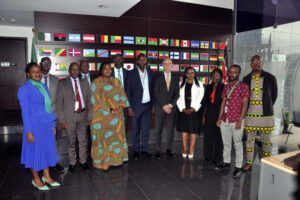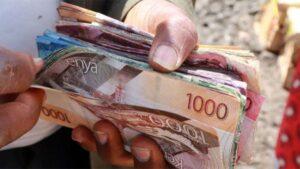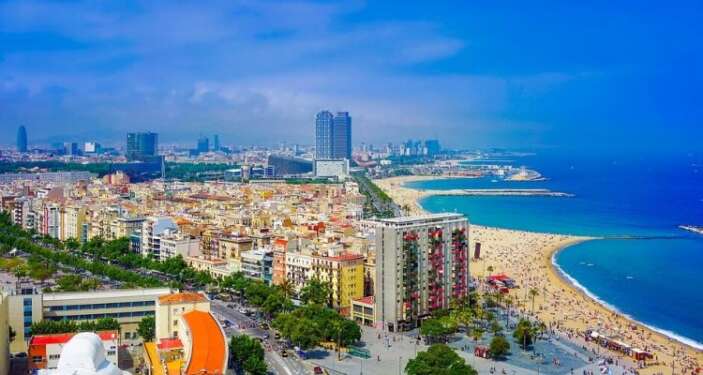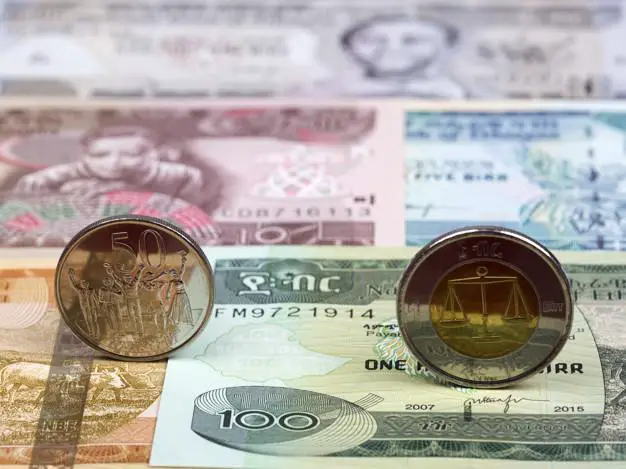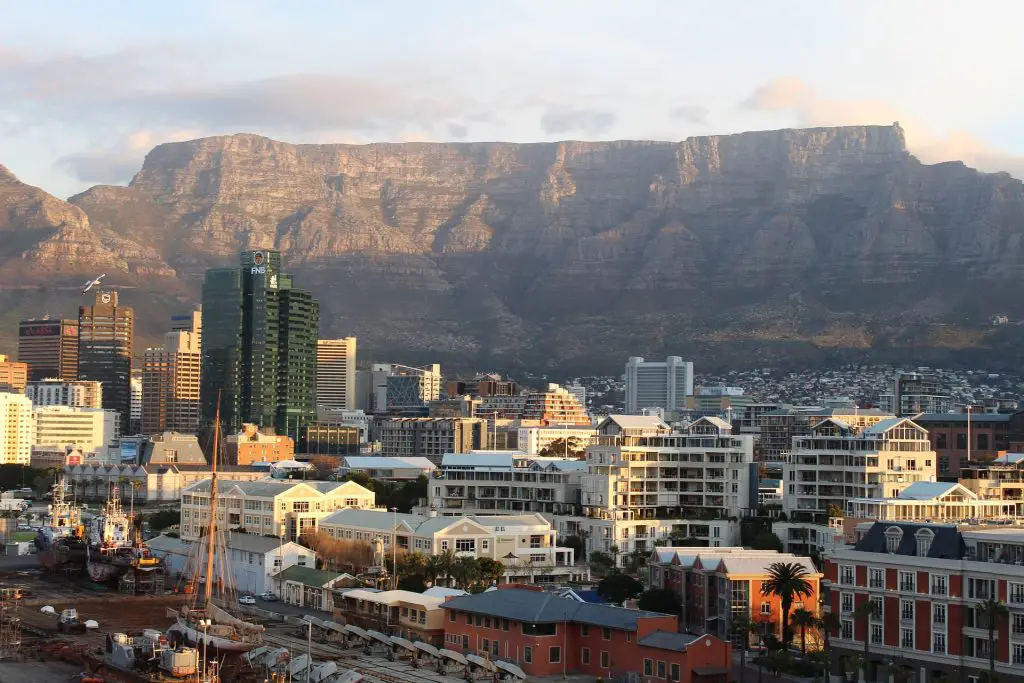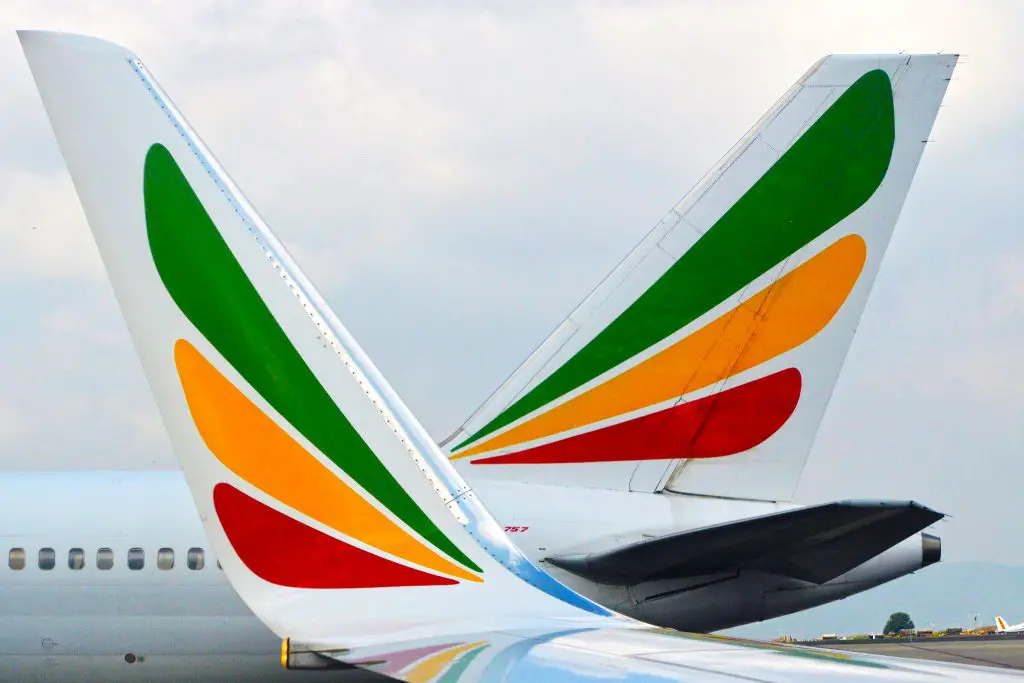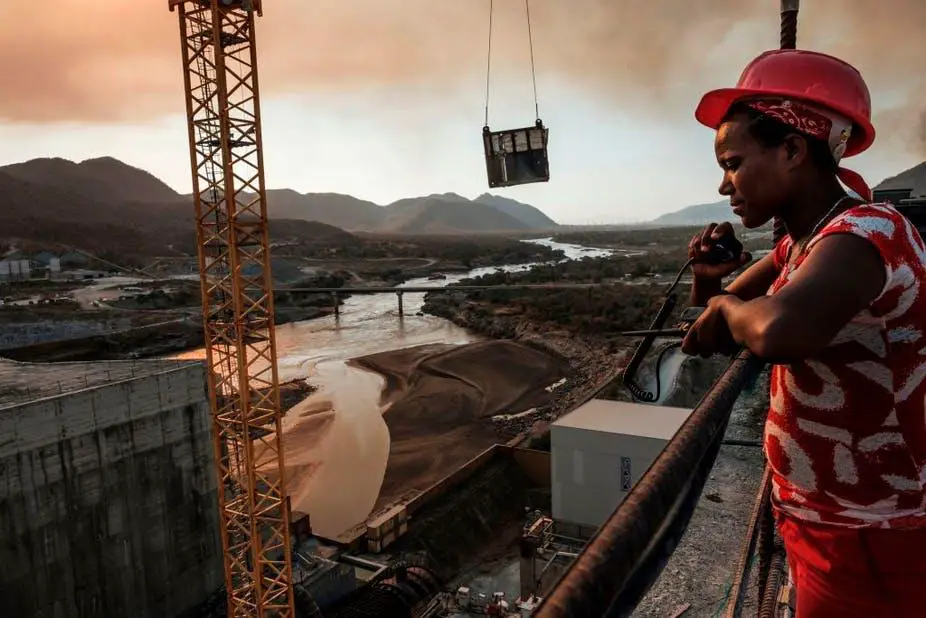- Kenyan Farmers Receive $2M Boost from Africa Fertiliser Financing Mechanism
- Brace for High Interest Rates for a Longer Period World Bank Warns Kenya
- Kenya-Ethiopia Trade Relations: Legislators Advocate for Policy Alignment to Boost Ties
- Visualising the state of debt in Africa 2024
- Abu Dhabi radiates optimism as over 300 startups join AIM Congress 2024
- TLcom Capital Raises $154 million in Funding to Boost Its African Growth
- Africa’s $824Bn debt, resource-backed opaque loans slowing growth — AfDB
- LB Investment brings $1.2 trillion portfolio display to AIM Congress spotlight
Browsing: Ethiopia
Those with access to digital infrastructure have not been as economically affected by the pandemic as those with no access.…
Nigeria is Africa’s largest economy after overtaking South Africa.…
The International Monitory Fund (IMF) predicts that the economic growth for Ethiopia in 2020 is 1.9 per cent while its growth in 2021 will be at zero.
This is from IMF’s Regional Economic Outlook of Sub Saharan Africa under the title, ‘A Difficult Road to Recovery.’ The report shows how African countries’ economies have been hit severely by the covid-19 pandemic.
According to the report, the economic growth of African countries in 2020 has significantly dropped due to the pandemic and estimates a worse forecast than the ones in its April reports.
The report further states that this year very few countries have has positive improvements in terms of growth while the rest are below zero and the majority are in negative performance.
According to the report, in the Ethiopia budget for the year that ended on July 7, 2020, the county’s economic growth has shown a massive drop in …
Ethiopia attracts $500 million Foreign Direct Investments (FDI) during the first quarter of the country’s current fiscal year according to the investment commission of Ethiopia.
The FDI declined by 20 per cent compared to the amount it attracted in 2019 in the same period due to the impact of the covid-19 according to Lilise Neme, the Commissioner of Ethiopian Investment Commission.
According to Lilise, 42 per cent are registered to invest in manufacturing, 47 per cent in service and 11 per cent are in agriculture sectors.
The commissioner added that the $500 million FDI registered in the three months in the face of a pandemic is promising and considered a victory. She also noted that most of the FDI is from China.
Despite Turkey, China and India being among the top FDI sources in Ethiopia, only one Chinese company appeared in the list of top 200 taxpayers awarded by Ethiopia …
The world Bank signed a $400 million grant to Ethiopia for its urban programs and another $80 million to support the completion of projects started during the second phase of Agricultural Growth Program (AGP II).
The $400 million agreement was signed by the Minister of finance Ethiopia Ahmed Shide and Ousmane Dione, World Bank Country Director for Ethiopia, Eritrea, Sudan and South Sudan to support Ethiopia’s urban programs. The programs include job creation and productive safety nets program in Ethiopia’s cities.
During the signing ceremony, the government of Ethiopia said it will also allocate an additional $150 million for the implementation of the program aimed to be executed within five years. 83 cities and towns in Ethiopia will benefit from the programs while also 798,500 people living below the poverty line will benefit from the programs.
The $80 million grant aims at supporting the completion of projects started during the …
Africa is big! Africa is growing and is projected to be more populous than it is now. Estimates indicate that nearly 2.8 billion people will inhabit Africa by 2060, according to the World Bank.
The high population could impact African countries depending on each respective country‘s reaction toward overpopulation and urbanization.
A crucial factor in this is land. To be more specific, urbanization of African economic hotspots ought to be analyzed effectively, because Africa is not open to the world as it supposed to be.
Not only that, but African cities are changing fast, and Africa requires a robust approach which is close to fool-proof to push the region towards sustainable development.
In this case, the Organization for Economic Co-operation and Development (OECD) report on Africa’s Urbanisation Dynamics 2020 enlightens the perspective quite vividly.
Kenya had more urban dwellers than the entire …
Ethiopia wants to join the World Trade Organization (WTO), the historically technocrat country now wants to open its doors and become a market economy.
This means privatizing its industries, a move that the country was previously reluctant to take. However, over the last eight years, Ethiopia has been making major economic reforms and the world has begun to notice.
Under the new liberalization policy, Ethiopia will now privatize some key sectors like its telecom industry and its national pride, the airlines led by Air Ethiopia as well as its banking and logistics sectors.
The world has taken notice and to urge and nudge the country on, the international community has allowed it to resume negotiations with the WTO.
A bid 8 yrs in making
Ethiopia started to make moves towards joining the WTO some 8 years ago when it first filed its application and a Working Party was formed in …
Ethio Telecom through its performance report showed that its revenue this year saw a 105.1 per cent boost over the company’s target for the year, which is an increase of 31.4 per cent compared to 2019.
The company, which is the only telecom company in Ethiopia last week announced that it had earned $ 1.3 billion in total revenue in the 2012 Ethiopian budget year which ran from July 1, 2019, to June 30.
According to the report, international services generated $147.7 million, a 107 per cent jump from the target and a five per cent rise from 2019.
During this fiscal year, the major payments the telecom made were $321 million in taxes and $113 million in dividends paid to the government. The telecom also paid $318.4 million towards projects carried out by Vender Financial Modeling, payments which were never transferred to the next budget.
Also Read: Vodacom, Safaricom
…The Ethiopian Grand Renaissance Dam is inching closer to completion, rekindling the environmental and political controversies that have dogged the project from the start nearly 10 years ago. In addition, recent satellite images show a steady increase in the amount of water being held back by the new mega dam. Mahemud Tekuya explains what’s at stake.
The current dispute over the Grand Ethiopian Renaissance Dam is directly linked to colonial-era Nile treaties. During the scramble for Africa, controlling the source of the Nile was a major colonial goal for the British. In 1902, the UK and Ethiopia concluded the Anglo-Ethiopian Treaty in which Ethiopia agreed not to arrest or totally block the flow of the Nile.
Then there was the Anglo-Egyptian Treaty signed in 1929. This was between the British (on behalf of its colonies, Sudan, Kenya, Tanzania and Uganda) and Egypt. The treaty prevented British East African colonies …
Ethiopia’s Jobs Creation Commission has partnered with the MasterCard Foundation to conduct a US$11.8 million job creation initiative dubbed Enabling Ethiopia.
The five-year project is meant to serve as one of the country’s implementing tools for Ethiopia’s Plan of Action for Job Creation (PAJC – 2020-2025). The project aims at fostering innovation, policy reform, inclusiveness and advocacy.
The ambitious project looks to create some 14 million jobs by 2025 by creating an entrepreneurial ecosystem, cultivating the necessary human capital, adopting pro-job macro policies, and supporting inclusive innovations; these are just some of the major focus areas of this long-term plan.
The goal is to have a private sector-led economy that is coordinated and supported by the government. The project aims to support the adoption of job-rich macro policies and the implementation of innovative job creation programs.
To achieve this, the initiative acknowledges the need to build capacity of implementing …
